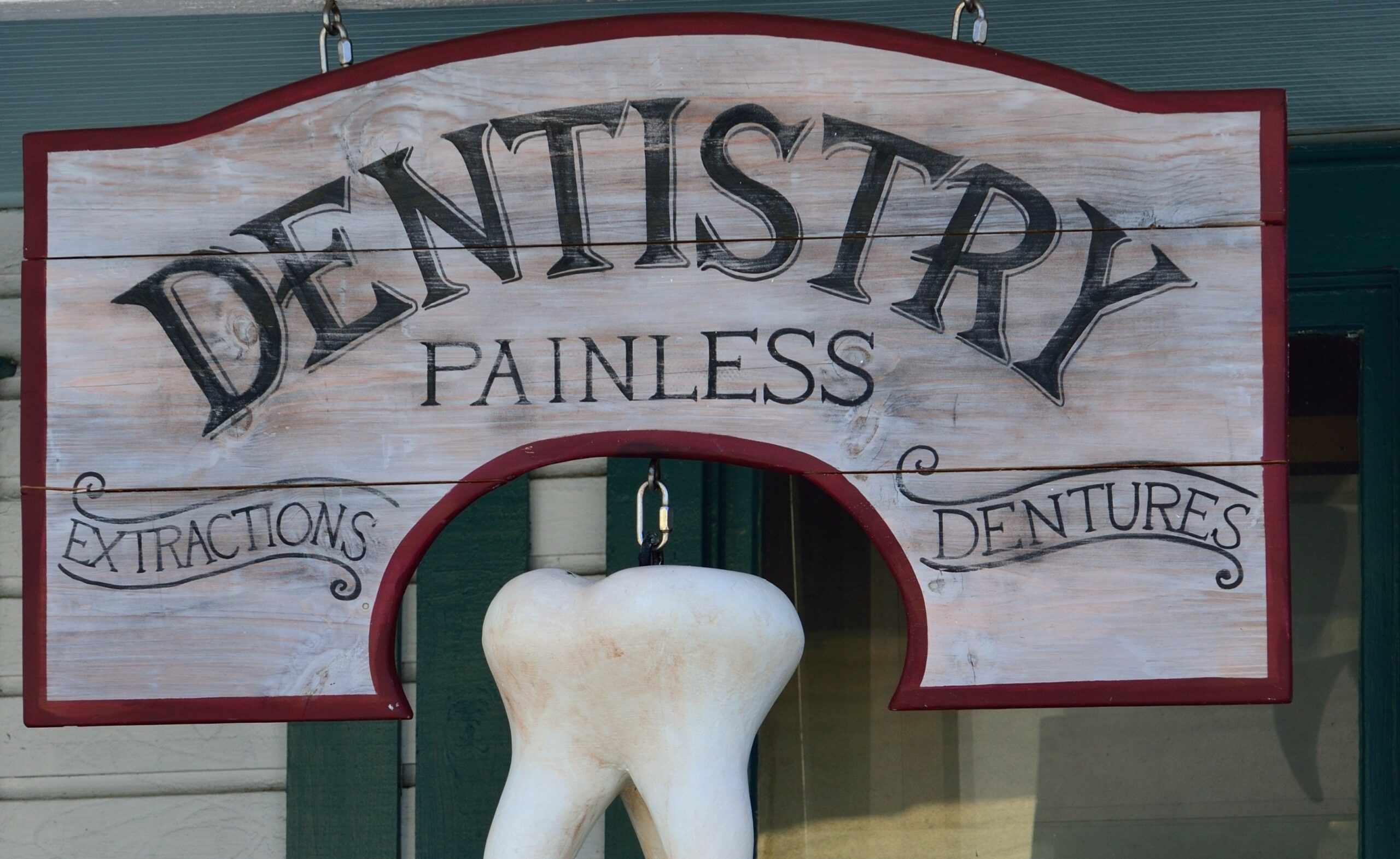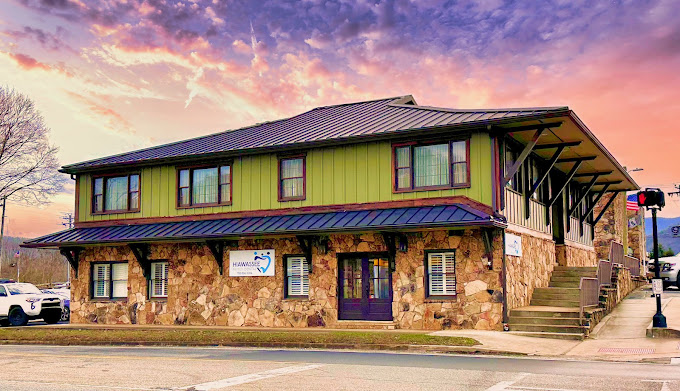
02 Apr Afraid of the Dentist: How to Cope with Dental Anxiety
Some say that the two most terrifying words in the English language are, “Open wide!” The instant we hear them, our mind conjures up images of dentists in white lab coats, holding large, ominous tools poised to drill away at our mouths with their high-pitched whine, all while that big fluorescent light glares down at us. With that mental image, who could blame many adults and children alike for suffering from acute dental anxiety?
In reality, most dentists, including our Hiawassee Family Dental staff, are nothing like the evil villains of our fears. They are friendly, helpful people who can walk you through any dental procedure you might need to undergo. Shedding light on the different categories at play, the causes behind dental anxiety, and possible solutions to the problem will equip you to be calmer and more confident the next time you hear the words, “Open wide.”
Anxiety vs. Phobia
Medical News Today describes dental anxiety as, “…a physical or psychological reaction to an anticipated, potential danger that someone associates with a visit to the dentist’s office.” Essentially, the term refers to the fear, nervousness, and general distress that someone suffers in a dental setting (or in anticipation of it). If you get knots in your stomach each time you think about going to the dentist, that falls under dental anxiety. If you find yourself panicking every time you sit in the waiting room, that’s also dental anxiety.
Experts draw a distinction between common dental anxiety and the more serious dental phobia. As Medical News Today explains, “Dental phobia is an extreme, persistent, and unrealistic fear or terror related to going to the dentist. The Diagnostic and Statistical Manual of Mental Health Disorders (DSM-V ) recognizes dental phobia as a specific type of phobia.”
It’s important to recognize at the outset that what begins as general anxiety regarding the dentist’s may escalate into a full-blown phobia, resulting in irrational behaviors that the person may acknowledge but be almost unable to control.
Common Symptoms
It’s not just knots in the stomach. Dental anxiety must be taken seriously, as the person’s fear of the dentist may lead them to avoid the dentist altogether, thus harming their oral and therefore overall health. Traditional symptoms of dental anxiety include, but are not necessarily limited to:
- Sweating
- Dry mouth
- Racing heartbeat
- Bruxism (grinding teeth)
- Low blood pressure and fainting
- Crying or feeling physically ill in anticipation of the visit
- Other visible signs of distress or panic
- Temporomandibular joint disorders
Causes of Dental Anxiety
To prevent dental anxiety, we have to start by understanding why a patient would experience distress over a visit in the first place. As previously pointed out, many are troubled by the bright lights and loud, ominous whine of the drill. But that’s not all. Other causes include:
Fear of pain.
The most obvious reason for dental anxiety, this is a common fear among patients. It’s true that both routine and specialized dental care may at times cause discomfort, and even potentially some pain, though of course, your dentists always seek to minimize or reduce this as much as possible.
Fear of needles.
Dr. Carmin of Wexner Medical Center shares that up to 21% of the population is afraid of needles and receiving injections. This number shouldn’t be surprising. Even those who aren’t afraid, exactly, find themselves flinching or cringing when the needle comes their way.
Fear the injections won’t work.
Many experience dental anxiety out of a fear that the injections intended to numb them will fail to do the job. Patients experience intense distress, believing that the scary-looking drill or sharp pliers will be inserted into their mouths before the injections have actually taken effect.
Fear of anesthetic side effects.
The “fat lip” look is rarely flattering on anyone. For some people, the dizziness, fainting, and nausea that can accompany the fat lip as side effects of local anesthetics are enough to cause panic and dread.
Helpless/loss of control.
If you’ve been to the dentist’s lately, you know the helplessness of being in the dentist’s chair. As the patient, you do not usually know what is happening to you and have no authority over the situation. Various tools and appliances unknown to you are used on your teeth and tossed aside without your understanding, and for many, this is highly distressing.
Loss of personal space.
The dentist-patient position is admittedly a vulnerable one for the patient, and this may cause embarrassment for some. Patients may be uncomfortable with the loss of personal space or simply feel self-conscious about their teeth or potential mouth odors.
Easing Dental Anxiety
Drawing on all these potential contributing factors, what can be done to reduce dental anxiety?
Some elements, like the up-close-and-personal position or the bright lights, are just a part of the job. But many others can be alleviated through clear communication with your dentist and their staff.
For those whose primary fear is injections, there are a variety of solutions you can try. First of all, don’t look at the needle! Typically, you’ll be looking at the ceiling anyway, but don’t look down. Second, implement deep breathing techniques—they’re not just for yoga. Practicing deep breathing both before and during the appointment where you must receive injections can help you calm down enough to receive the shots. Harvard Health also reminds you to tell the staff giving the shot you are afraid, instead of trying to tough it out. You may prefer them to do it without your noticing, chatting to you the whole time, or you may prefer them to talk you through every step. Either way, they can help you.
If your primary fear is pain, your best bet is also to communicate that clearly to your dentist and dental staff. They are well-trained in dental procedures and will be able to reassure you of the safety and efficacy of the methods they are employing. You can also coordinate a stop signal with your dentist, such as raising your hand whenever you want them to stop immediately.
If your primary fear is loss of control, once again, we encourage you to share that with your dentist. You don’t have to be the ignorant on-looker in your own healthcare appointment! Explain that the lack of control makes you anxious. Your dentist will be happy to talk you through each step of the process.
Final Thoughts
Going to the dentist doesn’t have to tie your stomach in knots. We understand that it can be distressing for many people, but at Hiawassee Family Dental, we’re here to help. If you experience dental anxiety, we want to know about it so that we can best create a welcoming, comfortable environment for you. We truly care about our patients and we hope you know that there’s nothing to fear.

About Our Team
Dr. Hargrove and our excellent team here at Hiawassee Family Dental have over 30 years of experience in the field of dentistry. We’re passionate about superior patient care and education.
Contact us to schedule your next appointment!


Sorry, the comment form is closed at this time.